Teacher boards
National teacher board (October 2025)
In October all teacher boards are meeting again for an update in their national teacher board team. On October 14th, the TASC team from Belgium for example held a two-hour National Teacher Board meeting, followed by an informal get together to foster connection and reflection. The session focused on:
- Sharing the current state of the project
- Exploring the “Viewpoint Shuffle” method to encourage perspective-taking
- Introducing conflict recovery cards as tools to proactively build problem-solving and restorative skills, whether working with colleagues, students, parents, or within broader educational contexts.
This gathering highlighted the importance of sustainable communication in education and reinforced our commitment to collaborative, restorative practices.
Physical meeting Vilnius (December 2024)
TASC Teacher Board held its physical meeting in Vilnius, Lithuania for testing and giving feedback on the Teacher Training Manual ‘continuous sustainable communication’ grade B
The TASC Teacher Board gathered in Vilnius, Lithuania, for a physical meeting aimed at testing and evaluating activities outlined in the Grade B section of the Teacher Training Manual (TTM) from the Teacher Academy Sustainable Communication (TASC). Scheduled from December 10th till December 14th, this European gathering is part of the Teacher Academy Sustainable Communication’s (TASC) ongoing efforts to drive social transformation through education. The initiative focuses on equipping both pre-service and in-service teachers with essential communication skills. The manual addresses five critical areas of competence development: Human Rights and Values, EU Values and Identity, Non-Discrimination and Equity, Understanding Ourselves and Others, and Dialogue.
The meeting provided a platform for discussions focused on specific learning outcomes, key concepts and activities from the Grade B materials in the TTM. These materials are designed for teacher trainers to train teachers to deepen teachers’ knowledge of sustainable communication while tackling issues such as equity, cultural diversity, and fostering effective dialogue within educational contexts.
Feedback collected from the teacher board during the sessions played a vital role in upgrading the TTM in order to approve the quality.












Virtual September meeting to kick off second year (September 2024
The Teacher Academy Sustainable Communication (TASC) is advancing its mission of fostering social change through education by equipping teachers with vital communication skills. During the European Virtual Meeting on September 18th the focus was on testing and receiving feedback on activities from TASC’s Teacher Training Manual (TTM). The manual supports both pre-service and in-service teachers in developing competences across five key modules: Human Rights and Values, EU Values and Identity, Non-Discrimination and Equity, Understanding Ourselves and Others, and Dialogue.
The meeting facilitated discussions around specific activities from the TTM’s grade A materials. These activities aim to enhance teachers’ understanding of sustainable communication while addressing challenges like equity, cultural diversity, and effective dialogue in educational settings. Feedback gathered during sessions from the teacher board will be crucial for refining the TTM and ensuring its effectiveness in real-world applications.
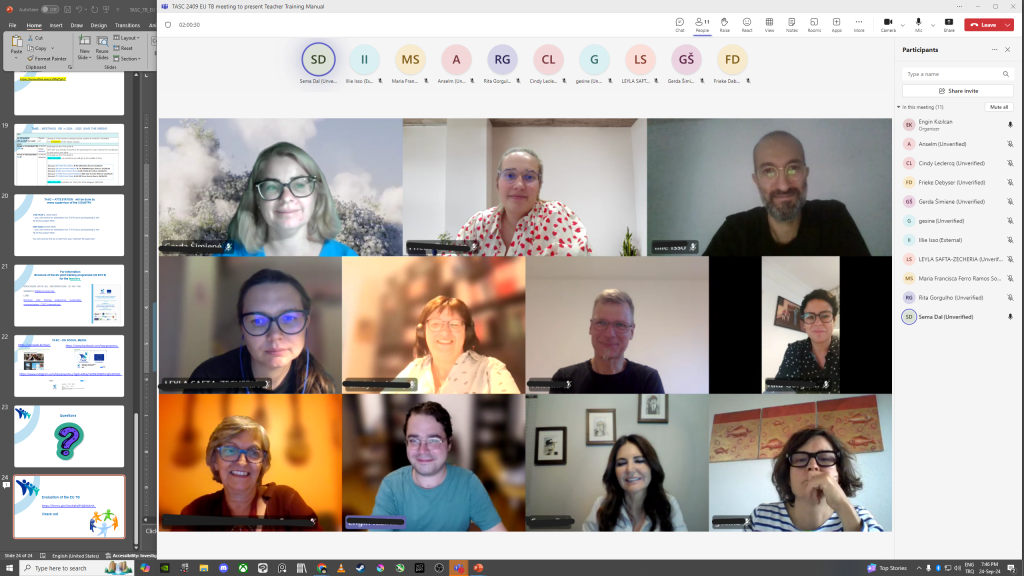

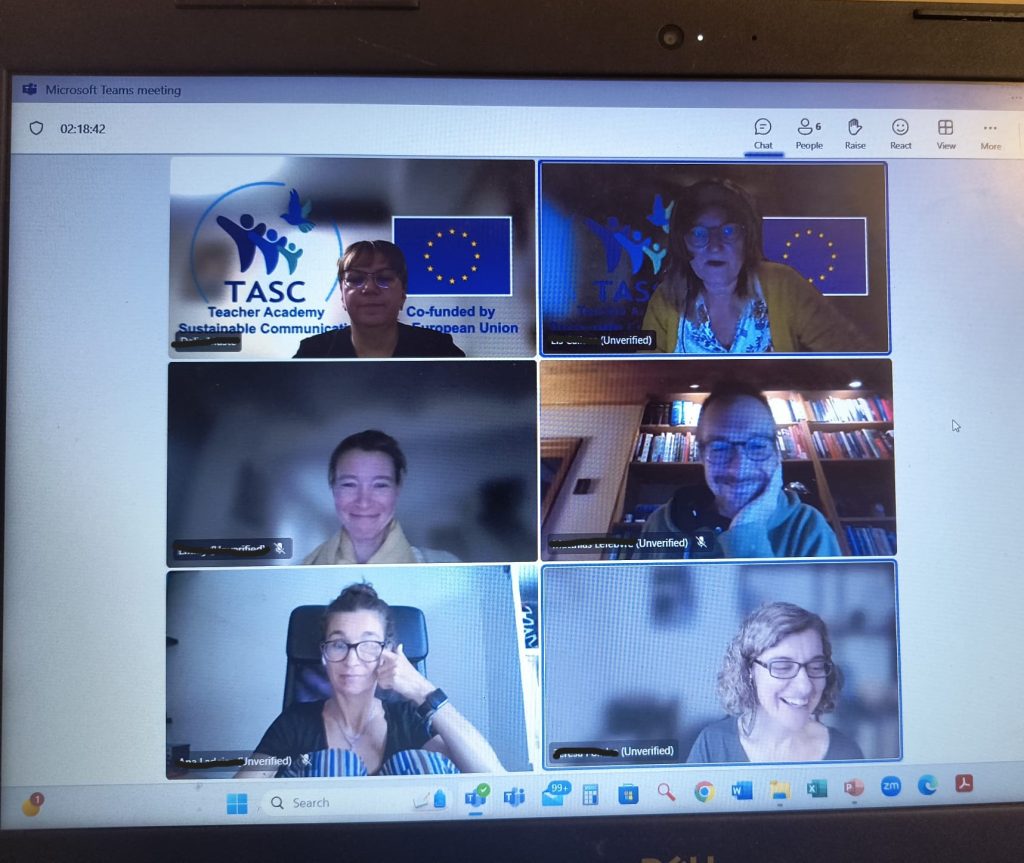
TASC – first European virtual meetings of the Teacher Boards (April 2024)
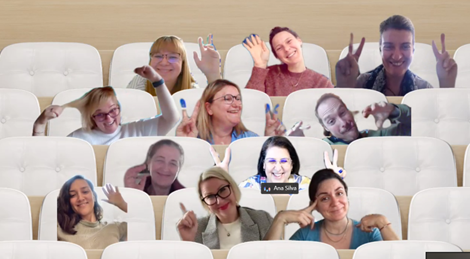
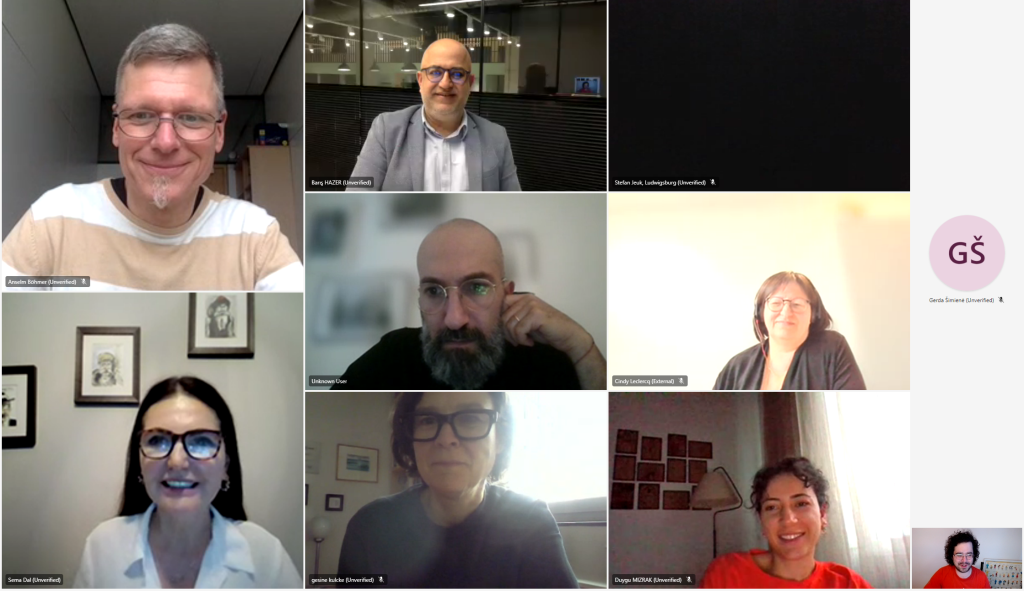
This week (April 22-29, 2024), the EU Teachers Board (TB) and EU Community of Practice (CoP) are holding the first virtual meeting as part of the Teacher Academy Sustainable Communication project. International participants from various countries including Belgium, Romania, Turkey, Portugal, Spain, Germany, and Lithuania will come together to collaborate. Previously, national meetings were organized, but now we are working together internationally.
The EU TB consists of 70 teacher educators. The TB groups previously met within their respective countries and are now convening for the first time as European groups, with two teacher educators from each country present. There are a total of 5 European TB groups. The purpose of these EU TB groups is to connect and exchange experiences/knowledge at an international level regarding sustainable communication, and to provide advisory support in developing the 20-credit training manual on this theme. The plan for the next two years will also be shared.
By collaborating internationally, teacher educators enrich themselves in this theme. New challenges are embraced, leading to the emergence of European perspectives. Be sure to follow our Instagram and Facebook pages to stay updated.
Physical meeting Valencia (June 2024)
From June 4th till June 8th, each country delegated teacher trainers to perform the first testing round of grade A (6 ECTS) of the joint training programme ‘sustainable communication’ in Valencia. During this testing, 20 teacher trainers from 7 different countries provided feedback on the first of three parts of the ‘teacher training manual’ (grade A – 6 ECTS). This feedback was the start of the itinerary process in which all modules of the training will be optimized.
A second objective of the TASC-meeting in Valencia was a retrospect on the first project year (from May 2023 till May 2024) and looking ahead at year two of the project. In year two, the next parts of the teacher training manual, grade B and a nod to grade C, will be developed. Also, the start of the development of the parallel teacher toolkit grade A, with a focus on tools for sustainable communication for teachers themselves to use in the school or classroom, is on the agenda for Spain. This makes for an important component of the meeting since 175 teachers will be testing this toolkit, consisting of 15 tools, in their class and school in September 2024.

Kick off of 7 national teacher boards (January 2024)
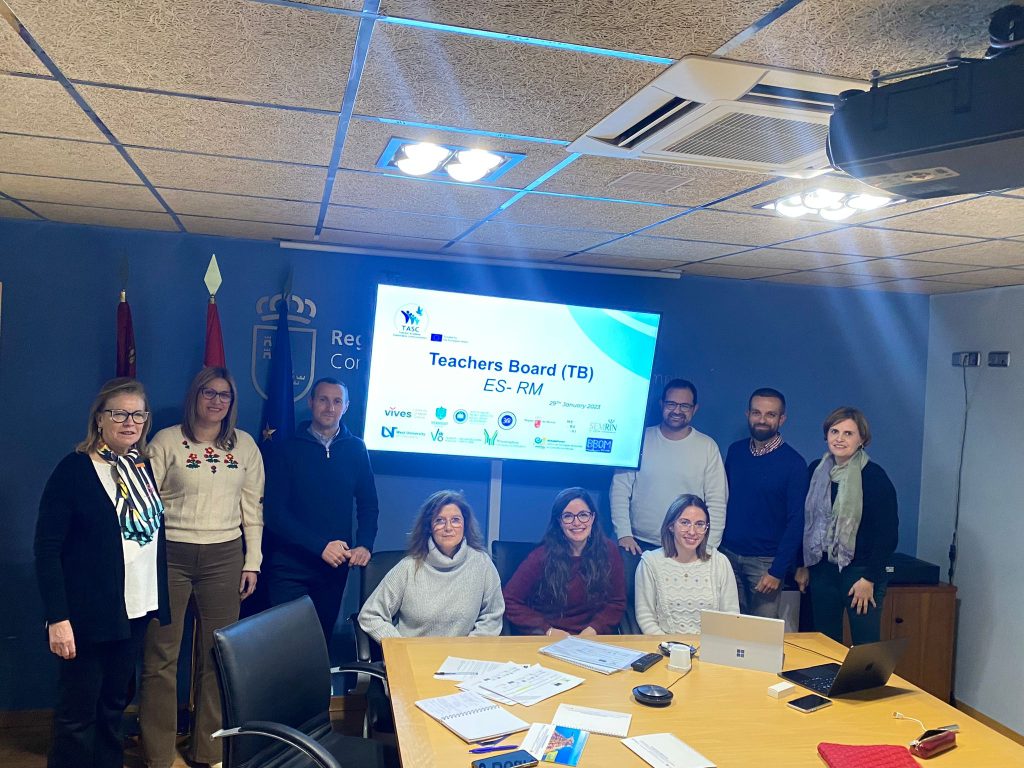
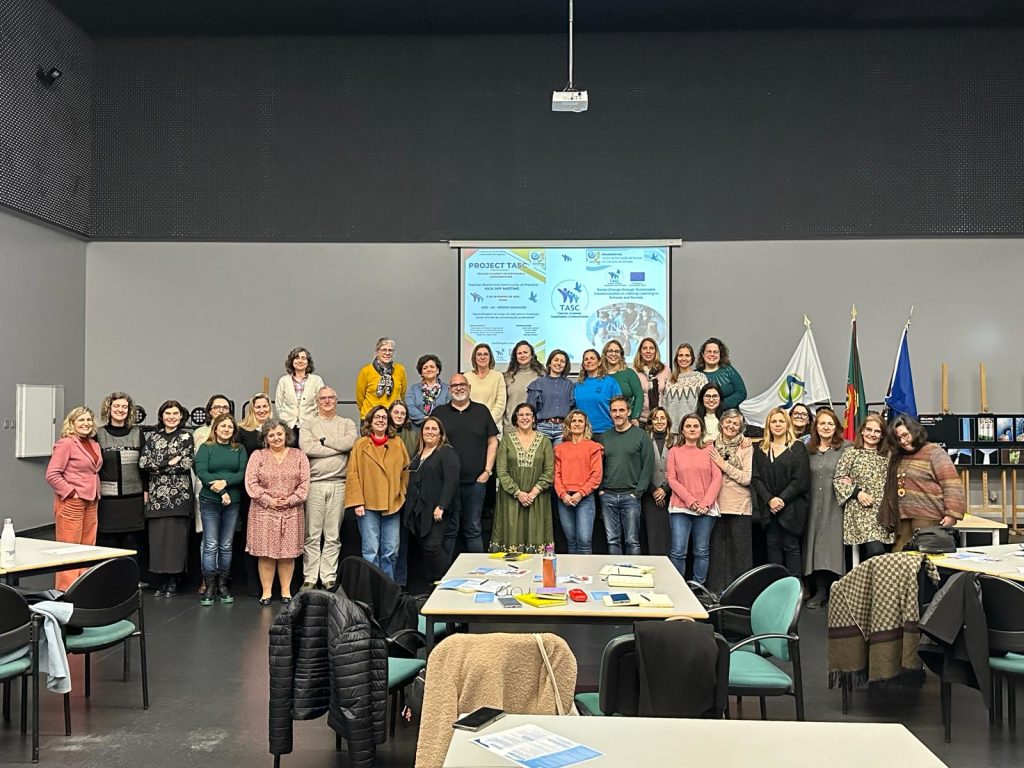

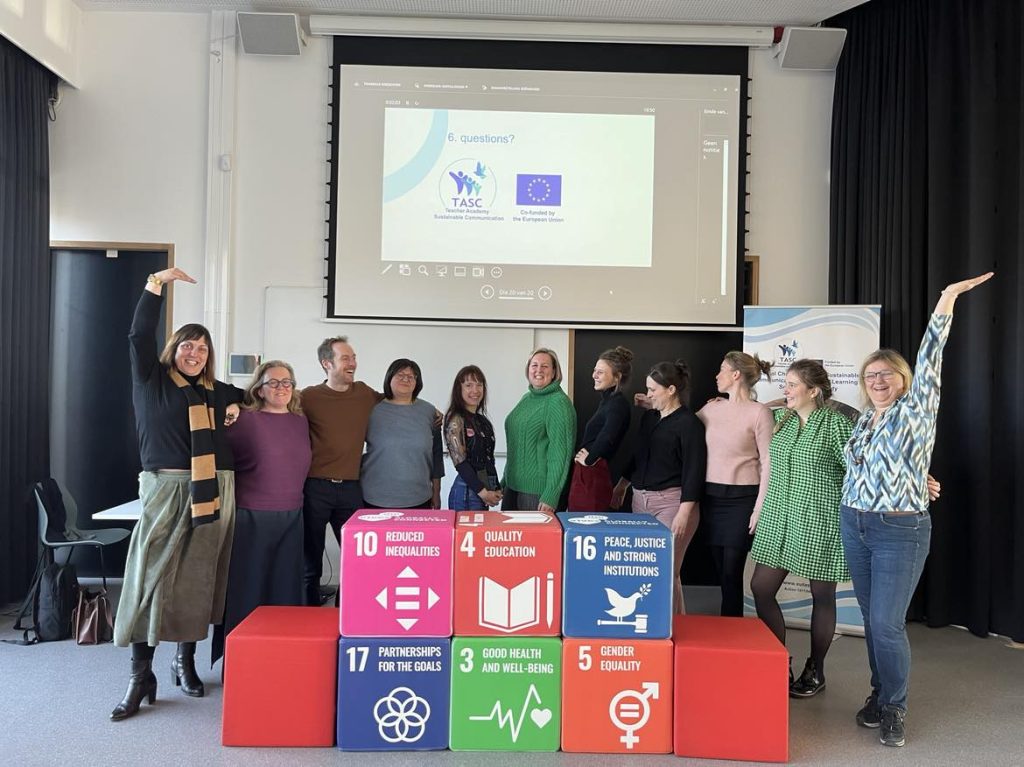
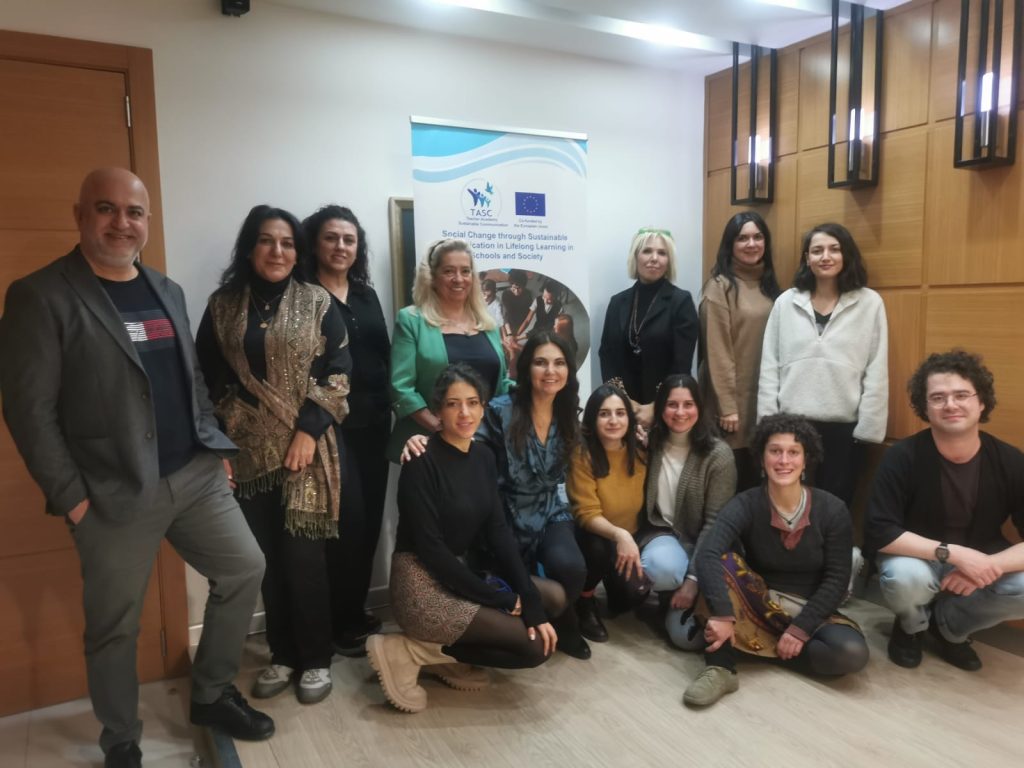
In January 2024 a group of teacher trainers from across Europe met for the first time for the teacher board (TB). This national meeting was organized per partner and took place in Spain, Portugal, Germany, Belgium, Turkey, Lithuania and Romania. In January a group of 70 teacher trainers from acroos Europe had the first meeting in their national teacher board (TB), each time a group of 10 teacher trainers related to the countries. They met physically in Spain, Portugal, Germany, Belgium, Turkey, Lithuania and Romania. The kick-off functioned as a meeting where members could get to know each other and delve into the essence of the project. The participants became acquainted with the project through various activities around on sustainable communication. All TB enjoyed this meeting and called it fruitfull and are eager to taste more on the topic of sustainable communication. During the teacher board KICK-OFFs, participants worked on various topics and assignments, providing valuable feedback to shape the training program. Now that the first national meeting in all countries has been completed, we look forward with great enthusiasm to the next meetings.